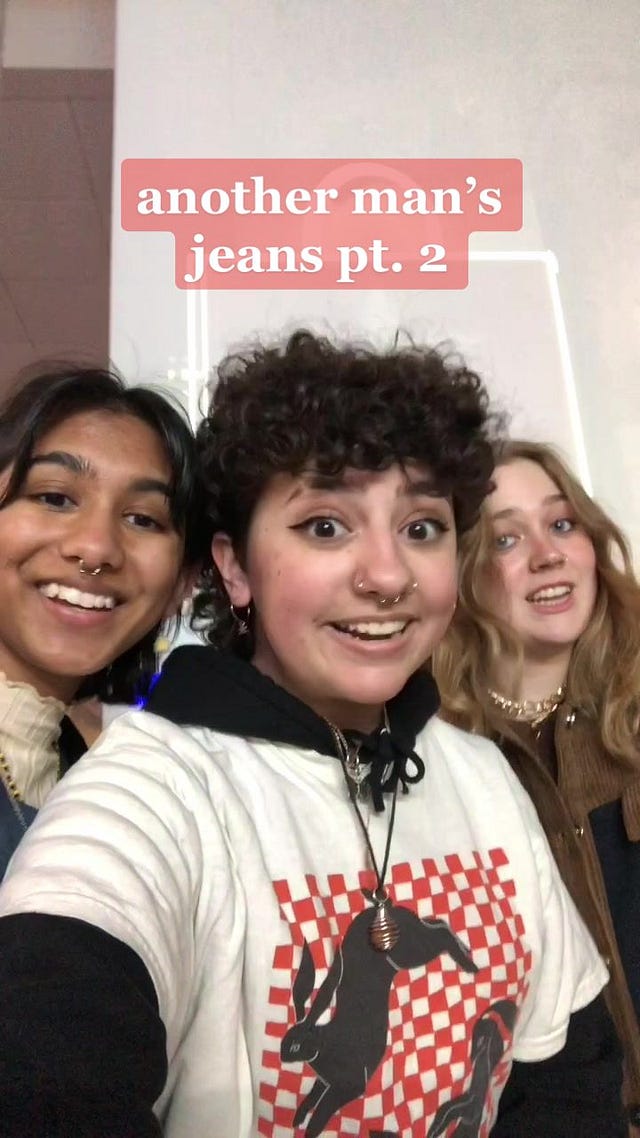fangirl
noun
fan·girl
/ˈfanɡərl/
Definition of fangirl
: a girl or woman who is an extremely or overly enthusiastic fan of someone or something
-Merriam-Webster
There you are, in a crowd of thousands who have paid to be standing in a stadium of like-minded individuals. The atmosphere is made up of passion, community, and extreme loyalty. The main event comes out, greeted with admirable screams and excited energy. This scenario could be from any number large events. Fans of any type share many qualities. The main differences is the type of people who populate each category and how outsiders perceive them. Each creates bonds between fans, a sense of passion for a community, and belongingness.
How can two groups who are so similar be treated differently?
1The motivation and characterization of the modern-day fangirl is misconstrued. The focus is on the unsavory parts of fangirls, rather than the celebration of community. It is a constant battle addressed and examined by outsiders about who they think fangirls are versus their actuality.
“She is one of the most dominant mediated images of fandom in contemporary culture, yet she does not symbolize an increased acceptance of fandom. Rather, as Click notes, fangirls are ‘ridiculed’ (2009, n.p.) in the popular press for their enactments of ‘uncontrolled, socially unacceptable desire’ (Stanfill, 2013:118).”
-Ysabel Gerrard
This depiction has occurred for a long time, blatantly rooted in sexism. The question is often posed within fandom culture, why can sports fans have justified emotional outbursts, but fangirls are labelled differently for acting in the same manner? Young women, or rather girls, dominate these fandoms, which illustrates a bad and unserious reputation. Can there be acceptance for both groups because of their passion and enjoyment, if violence is not incited?
“I think a lot of people dismiss the taste of a lot of young female audiences,” he says “[…] It's an incredibly awesome thing to have a largely female fanbase. I wouldn't trade that for anything, because they are very caring and they’re very empathetic. And they are very creative as well.”
-Calum Hood
Who are they?
On top of everything they do for the person or group that they support, there is constant criticism from others online and in real life. Fangirls are pictured as pointless and over-emotional. But to negate this, an argument can be made that fangirls are the backbone of the entertainment industry. Often, active fandoms have update accounts and dedicated fans that undertake marketing initiatives. They even organize fan projects at concerts and streaming parties on Discord and Twitter. This all points to their dedication for something that brings joy. On Twitter and TikTok, update accounts will gain a following based off of the person behind the account, rather than just the fandom they represent.
Other fans are rooting for the update account just as much as they are rooting for the fandom that they all support. More than this, genuine friendships are born from people who meet up in places across the world.
It is about the inside jokes, the fashion shows, the trends started within a fandom, the excitement, the collective sadness and happiness, and beyond everything the sense of community that bring value to fangirls.
Engaging with trending hashtags, staying up past midnight for an album drop, and waiting in a Ticketmaster queue (while simultaneously refreshing a Twitter hashtag) are all things that fangirls devote to together. It is the elevated emotions when they are able to get barricade at a concert or take part in a TikTok trend that is seen by their favorite artist. It is all the things that make a fangirl a fangirl.
There is nothing quite like being a fangirl. Much like the loyalty of a sports fans to their team, it is lifelong. Fangirls allow that person or people to take up space in their lives, which is no small ask. It is not controlling themselves and their reactions, just because someone else is uncomfortable with the excitement. It is not how the media views them, but about how fangirls view themselves, with worth, purpose, and community. That is who fangirls are.
Source Material:
Twitter- @ResearchBTS, @Tha5SOSFamily, @UpdateHLD, @maisiehpeters, @superbIoom, @drunkmedicine, @allmylines, @5SOS, @taylorswift13, and @sunflowervol03.
TikTok- @anneketruus and @ashemusic.
Rolling Stone Magazine- https://au.rollingstone.com/music/music-features/5sos-interview-41049/
Gerrard, Ysabel. “Groupies, Fangirls and Shippers: The Endurance of a Gender Stereotype.” American Behavioral Scientist, vol. 66, no. 8, July 2022, pp. 1044–1059, doi:10.1177/00027642211042284.
Disclaimer: This topic could have multiple research papers written about it, with thousands of current examples, across various platforms and fandoms. Due to this, the focus is on those I am part of or familiar with, most of which are within the music industry. Besides this, I cannot speak for what it used to be, only what I know it as. It is also important to note that the term “fangirl” is an umbrella term. “Fangirls” are found across many forms of media, fandoms, and genders.






